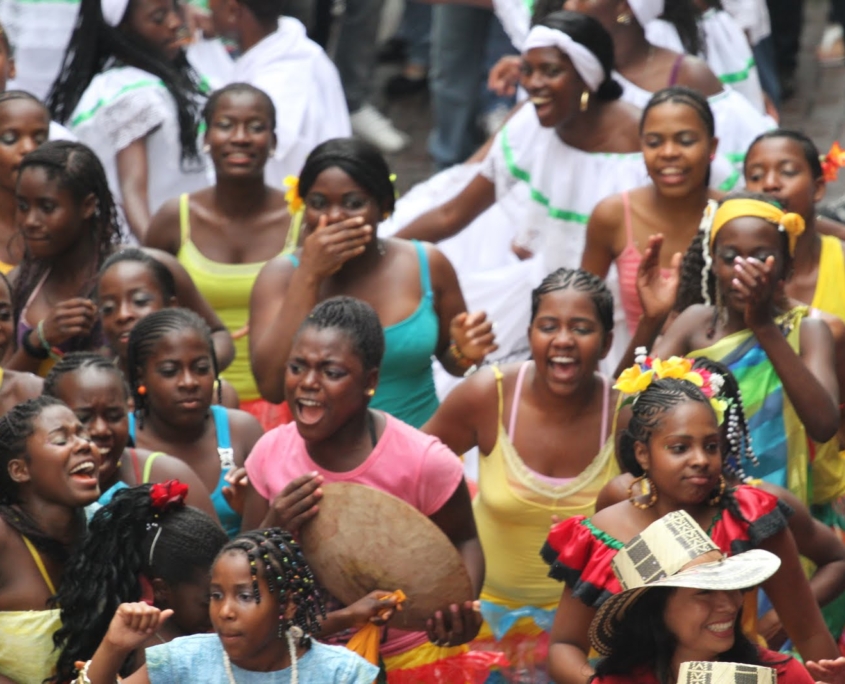Effects of the war on Afro-Colombians
Effects of the war on Afro-Colombians
Colombia’s civil war began in the year 1964 and finished in the year 2017, when a peace treaty between the guerrilla movement (FARC) and the government was concreted and signed. This long civil war affected and continues to affect most Colombians, however, according to the World Directory of Minorities and Indigenous People (WDMIP), some particular communities have been significantly more affected than others. One of these, says WDMIP, are Afro-Colombian communities, who have been strongly impacted by the civil war, mainly because of their vulnerability and lack of protection from the government. For years, the FARC guerrilla has sought areas to invade and gain possession of as many Colombian territories as they can. Territories that are occupied by minority groups such as indigenous groups and Afro-Colombians are typically the poorest and therefore seen as the easiest areas to invade. Many Afro-Colombian regions have been “attacked” and taken over by the FARC, which has resulted in more than 2 million Afro-Colombians being displaced.[21] Most of them have been forced to migrate towards bigger cities (like Bogotá, Cali, or Medellín), which has increased their level of poverty (due to the higher cost of living in such urban areas), as well as their exposure to discrimination and violence. Even though the occurrences of these scenarios has significantly decreased since the peace treaty was signed last year, the people who were displaced continue to be affected by this situation and struggle to go back to their hometowns.
On another hand, the civil war has made Afro-Colombians victims of violence because Afro-Colombian territories, such as El Chocó, have become the combat zone between the FARC guerrilla and the Colombian government. More specifically, this means that they have been exposed to bombs, shootings, and deaths at a much higher level than all other Colombians. Because of this, many Afro-Colombians have been victims of collateral damage and have been killed due to this war, which has become another major reason for displacement to occur. According to research done by one of Colombia’s official radio stations called Caracol Radio, over 25% of Afro-Colombians have left their hometown due to violence.[31]
Finally, another conflict that has been generated by the civil war is that of drug trafficking and prostitution. For years, the FARC guerrilla was seeking to recruit people that would do this for them at a low cost. Given that a high percentage of Afro-Colombians are extremely poor, young people from these communities are tempted by these options because they see them as the only way out to combat the poverty in which they live. As a result, over 40% of the people in the guerrilla group is composed of Afro-Colombians who now support the conflict and have been manipulated to continue supporting that side of the conflict.

